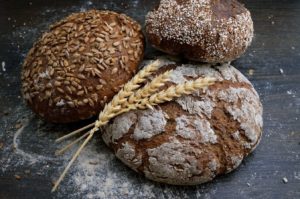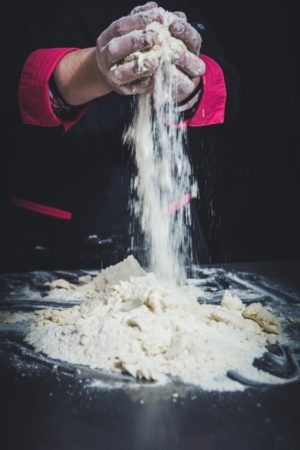Make no mistake about it, if you want to bake the very best cookies, muffins, bread, pastries, and other amazing flour-based goodies, you need to invest in the right bakery mixer. You need the right equipment in order to crank out the very best baked goods you’re capable of whipping together. As important as ingredients maybe, if you don’t have the right equipment to mix them with, you’ll end up rolling the dice. 
Define what is ‘best’ in your situation
Now that we’re clear about what could go wrong if you get the wrong equipment, the next thing we need to focus on is how to define ‘the best.’
Let’s be clear about one thing: what is best for your best friend might not be all that good for you. In fact, his or her choice might be a disaster for you. Why? Your friend might like to bake different things than you. They may be using their equipment in different circumstances. In fact, if they live far away from you, they might even live in another altitude zone and this can have a big effect on the quality of the cakes you bake. See the problem?
If the above isn’t bad enough, you also can’t trust what you read online about what the ‘best’ pieces of equipment are when it comes to baking. Many of these articles were written by sites that are actually trying to sell you one set of baking equipment over another. They, of course, present this information in the form of reviews. Everyone respects reviews, right? After all, they seem so objective. Well, don’t let surface ‘objectivity’ throw you off. If you read between the lines, you will quickly see that you’re actually being tricked or conditioned to pick the product the review site wants to push all along.
Why would they do this? What’s in it for them? Very simple-they get paid a commission. In short, what is in their best interest-making money off commissions through their recommended products-might not actually be the products you need. See the conflict? See the problem?
 So how do you define the best?
So how do you define the best?
The short and long answer is equally simple: focus on your needs. Start with a shortlist of questions that deal directly with what you’re trying to do and the results you’re looking for.
Is this product specialized for the specific task I want it to do?
– A little bit of specialization certainly goes a long way and saves you lots of time and effort because you don’t have to go through extra steps
Does this product have a long track record of durability and value for money?
– While you can save a lot of money going with new brands, they might not have proven themselves long enough in the marketplace for you to gamble your money on them. The risk is too high. It’s probably a good idea to spend a little extra on equipment you know will probably be up to the job and can last longer.
Is this product backed by a no questions asked money-back guarantee?
– This is crucial. If you find a seller that won’t even back up their wares, be very skeptical. Something’s up. You don’t want to end up figuring out the reason in the worst way possible.
Is this product designed to minimize any hassles when I use it?
– Look for extra features that are clearly aimed at making the whole baking experience as hassle-free as possible.
Does the product have a lot of moving parts I need to worry about? (pro tip: the less moving parts, the better)
Is the product easy to clean?
– This is a big deal. If you are buying a fairly big piece of equipment with a large surface area, you might be in for a lot of hassle if a lot of the ingredients get stuck in hard to reach places. You probably already know how much of a headache hardened baking ingredients can be when it comes to clean up. Avoid this headache by looking for a product that is designed from the ground up for quick and easy cleaning.
Is the product easy to store away?
– If you have precious cupboard real estate, you need a compact design. It’s that simple. Thankfully, there is heavy-duty equipment that can deliver a lot of performance without taking up too much space.
(Bonus) does the product have a famous or well-renowned brand?
– You shouldn’t buy solely by the brand. With everything else being equal, if you find a lesser-known brand with a track record of excellence AND a low price tag, you might want to go with the alternative as long as it complies with all the other concerns listed above.
Does the product require lengthy assembly?
– You’re busy. You probably don’t want to mess around with a piece of baking equipment that requires an engineering degree to set up and use.

– Even if you get a high powered piece of baking equipment, if it is too bulky it might be too much of a hassle to use. You might not use it as much and you end up wasting money this way. Focus on a good combination of a small or compact form factor and topnotch performance from the get-go so you can get full value for your hard-earned money.
By going through the questions above, you can easily tie the issues or concerns they raise with your personal situation. What should you cross-reference the questions above with? Well, for starters, you can think of the following:
- How you normally prepare baking materials
- How you mix baking ingredients
- How much time you have for kitchen clean up
- How much storage space you have
- How scalable your baking activities are normally
- The size of your budgets
Of course, the list above is not in order of importance. Different people have different priorities. Still, by using the process above you increase the chances that your choice of baking equipment will be both systematic and methodical. By making sure you are making a truly informed decision, you maximize the amount of value you get from every hard-earned dollar you spend on baking equipment!
 So how do you define the best?
So how do you define the best?